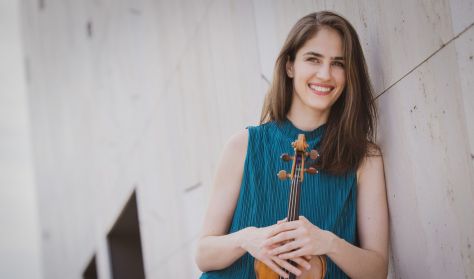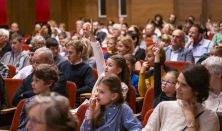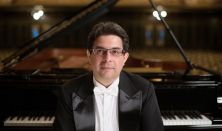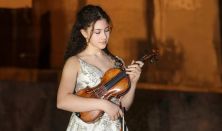Program

CONFESSIONS - Liszt / Bartók / Mahler - Júlia Pusker, Róbert Farkas E/1.
With the first piece of our program, we commemorate one of the most tragic days in our history, the anniversary of the execution of the martyrs of Arad. In memory of the heroes executed, Liszt composed a great piano piece titled Funérailles. Bartók composed his Violin Concerto No. 1 at a young age; it is the musical reminiscence of an unfulfilled love. Mahler composed his Symphony No. 5 in 1901, a record of his romantic state of mind as he wavered between joys, disappointments, illness and many other overwhelming experiences. more
Nincs aktuális előadás
Ön egy múltbeli eseményre keresett rá. Kérjük, válogasson aktuális kínálatunkból a Jegy.hu keresőjében!
Last event date: Friday, October 06 2023 7:00PM
PROGRAM
Bartók: Violin Concerto No. 1
Mahler: Symphony No. 5
FEATURING
CONDUCTOR
Violinist Júlia Pusker was born in 1991 in Kecskemét, Hungary. After graduating from the Royal Academy of Music in London, she obtained her Master's degree in 2016. Between 2016 and 2021, she was Artist-in-Residence at the Queen Elisabeth Music Chapel in Brussels, where she worked alongside with Augustin Dumay. In 2019, she was a finalist in the prestigious Queen Elisabeth Competition in Brussels, where she won 5th prize. Júlia Pusker has been selected by the European Concert Hall Organisation to perform in its Rising Stars series, hence she will give solo performances at the most prominent concert halls in Europe in the 2023-24 season. She has received numerous prestigious awards, including the Junior Prima Prize. The evening will be conducted by Róbert Farkas, who has been the chief conductor of the MÁV Symphony Orchestra since 2021.
Our offer
Mediterrán ünnep Farkas Gábor, Farkas Róbert
Mirian Khukhunaishvili, Mariam Abouzahra
Suggestions
Perényi Miklós, Takács-Nagy Gábor
A Ránki-család hangversenye Takács-Nagy Gábor, Ránki Dezső, Ránki Fülöp, Klukon Edit
Karácsonyi koncert
Warning! The basket time limit is about to expire!
item(s) in basket
total:
Time limit has expired. Please, put item(s) in to basket again.






